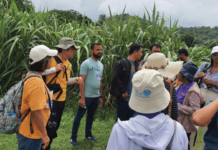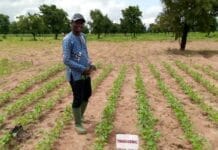BY WAHINYA HENRY
RESEARCHERS say the Virus Resistant Cassava for Africa Plus (VIRCA Plus) disease resistant and nutritionally-enhanced varieties are expected to improve the livelihoods and health status of Kenyans and in Africa.
Cassava mosaic disease (CMD), first reported in Tanzania in 1994, and the cassava brown streak (CBSD) have posed major constraints in making house-holds food secure.
The combined annual economic loss is estimated at $180 million (Sh18.7 billion) in East Africa by Kenya Agricultural Livestock and Research Organisation’s (KALRO’s) bio-technology scientist, Simon Gichuki in East Africa.
“We are upbeat the cassava variety planting materials can be available to farmers in about three years,” says Gichuki, of the crop, an important food and cash crop for smallholder farmers in Kenya and Africa.
At the continental level, the researcher estimates the economic loss of cassava at between 30 and 40 per cent or 15 to 24 million tonnes equivalent to $6 to $45 billion per year.
KALRO is spearheading research at the Thika based Horticulture Research Institute headed by the country’s pioneer bt cotton principal researcher, Charles Waturu where confined field trials have been actualised to develop on the genetically modified (GM) cassava crop.
IRCA Plus is a collabo-ration between KALRO, leading researcher institutions in Uganda and Nigeria and the Donald Danforth Plant Science Center in St Louis, United States and International Service for the Acquisition of Agri Biotech Applications (ISAAA).
Other challenges cassava crop promotion has faced despite being high yielding and having high nutritional value include controlling viral diseases, poor post-harvest shelf life, high cyanide levels in some varieties and low yield in addition to regulatory process setbacks.
But Waturu laments failure to fund research and not heading to regulatory institutions poses threat to development of the cassava technology as the country trails others in adoption.
ISAAA AfriCentre director in Nairobi, Margret Karembu says of a clash lies between the ministries of education tasked with the responsibility to implement research agenda and the Minis-try of Agriculture.
“Agriculture technology is not seen in the same light by different ministries. The policy should be harmonised. Immediate access of cash to fund research is bound to suffer,” said Karembu.

















